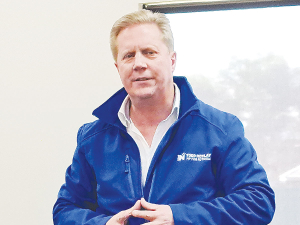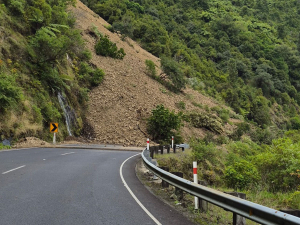New research has found that rural New Zealanders are less likely to be admitted to a hospital.
The University of Otago-led study, published last month in the New Zealand Medical Journal, revealed significant differences between hospitalisations for rural and urban New Zealanders.
The study used hospitalisation, the use of allied health services, emergency department and specialist outpatient data from 2014 to 2018, along with Census information, to calculate hospital use rates for residents in two urban and three rural categories.
The research found that, overall, regional centres had the highest hospitalisation rates and rural areas the lowest.
The study says that, on average, there were 1,079,000 all-cause hospitalisations per year between 2015 and 2019. Of those hospitalisations, 61% were for residents of major cities, 20% were other urban residents, and another 18% were rural New Zealanders.
Lead author Professor Garry Nixon, head of rural section at the University of Otago’s Department of General Practice and Rural Health, says he is surprised by the results because rural New Zealanders have poorer health outcomes, including higher preventable mortality rates.
“The problem is even greater for our most remote communities,” Nixon says.
“Despite the poorest health outcomes, highest levels of socioeconomic deprivation and the highest proportion of Māori residents. These areas have the lowest hospital admission rates and lowest utilisation of other hospital services such as emergency departments, specialist clinics and allied health services,” he explains.
According to the research, out of 6.3 million specialist appointments, only 21% were for rural New Zealanders. Out of 705,000 emergency department attendances each year, 21% were for rural residents.
Nixon says the findings also go against the pattern seen in similar countries.
In Australia and Canada, for example, poorer health status and lack of access to primary care services result in higher rates of hospitalisation for residents in rural areas.
“It’s unclear why this is not also the case in New Zealand, raising the possibility of poorer access to hospital services for rural communities,” Nixon explains.
Relative to their urban peers, rural people had lower all-cause, cardiovascular, mental health, and ambulatory sensitive hospitalization (ASH) rates.
Nixon believes there needs to be better monitoring of healthcare utilisation to help reduce these inequities.
“This is not only between regions as has been the case in the past – like the post code lottery – but also between neighbouring rural and urban areas,” he says.
He also believes the important role rural hospitals have in reducing these disparities also needs to be acknowledged.
“In recent decades they have received little attention by the larger health service and are in need of specific strategy and funding models that ensure their sustainability.”
In addition to utilisation of hospital services, the researchers believe primary care access and utilisation are an important part of the rural-urban equity puzzle.
“Since New Zealand currently lacks a nationally consistent primary care dataset, the researchers plan to explore this when data is available.”



















